
Mahatma Gandhi
Lawyer, nationalist, anti-colonialist and expert in Indian political ethics
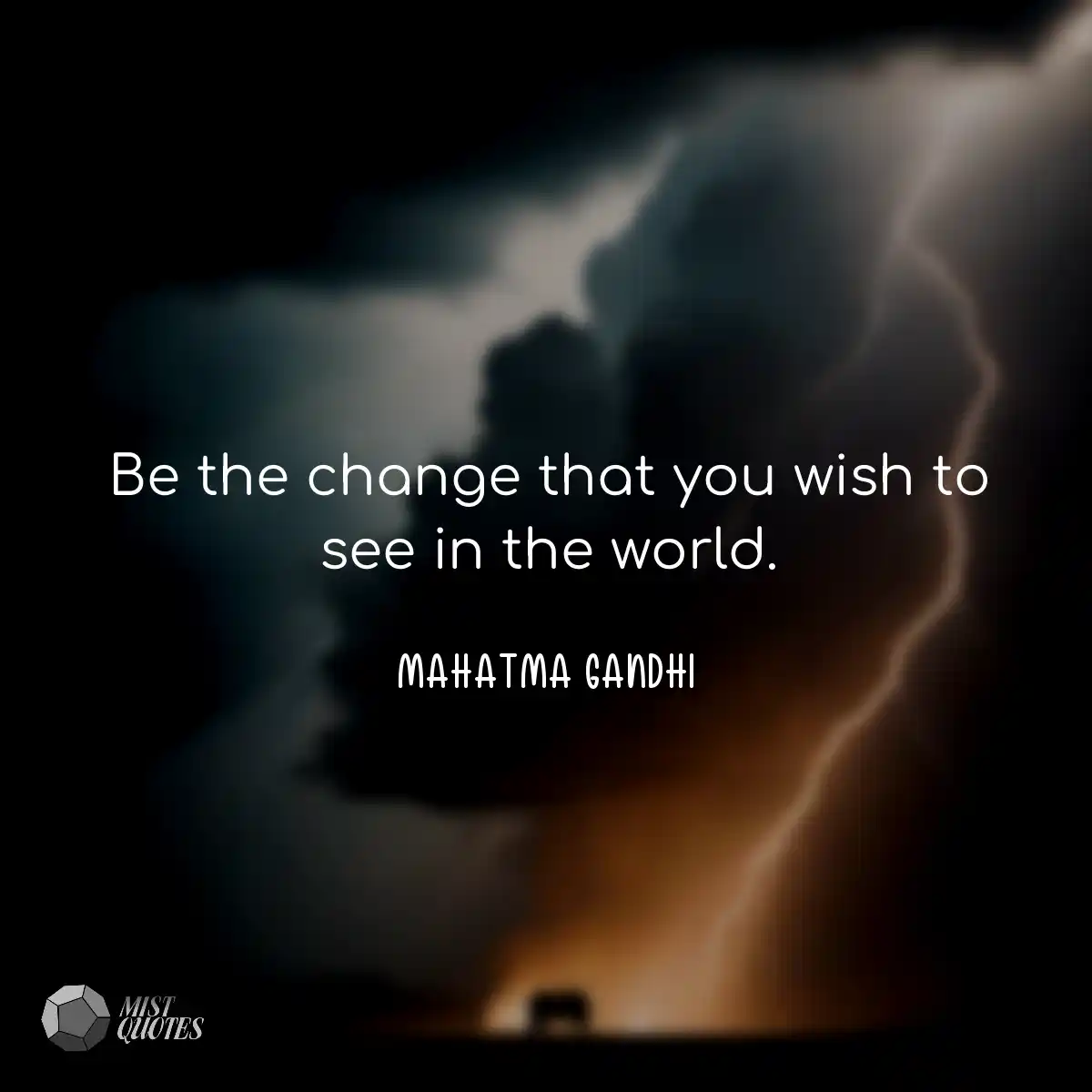
Be the change that you wish to see in the world.

An eye for an eye only ends up making the whole world blind.
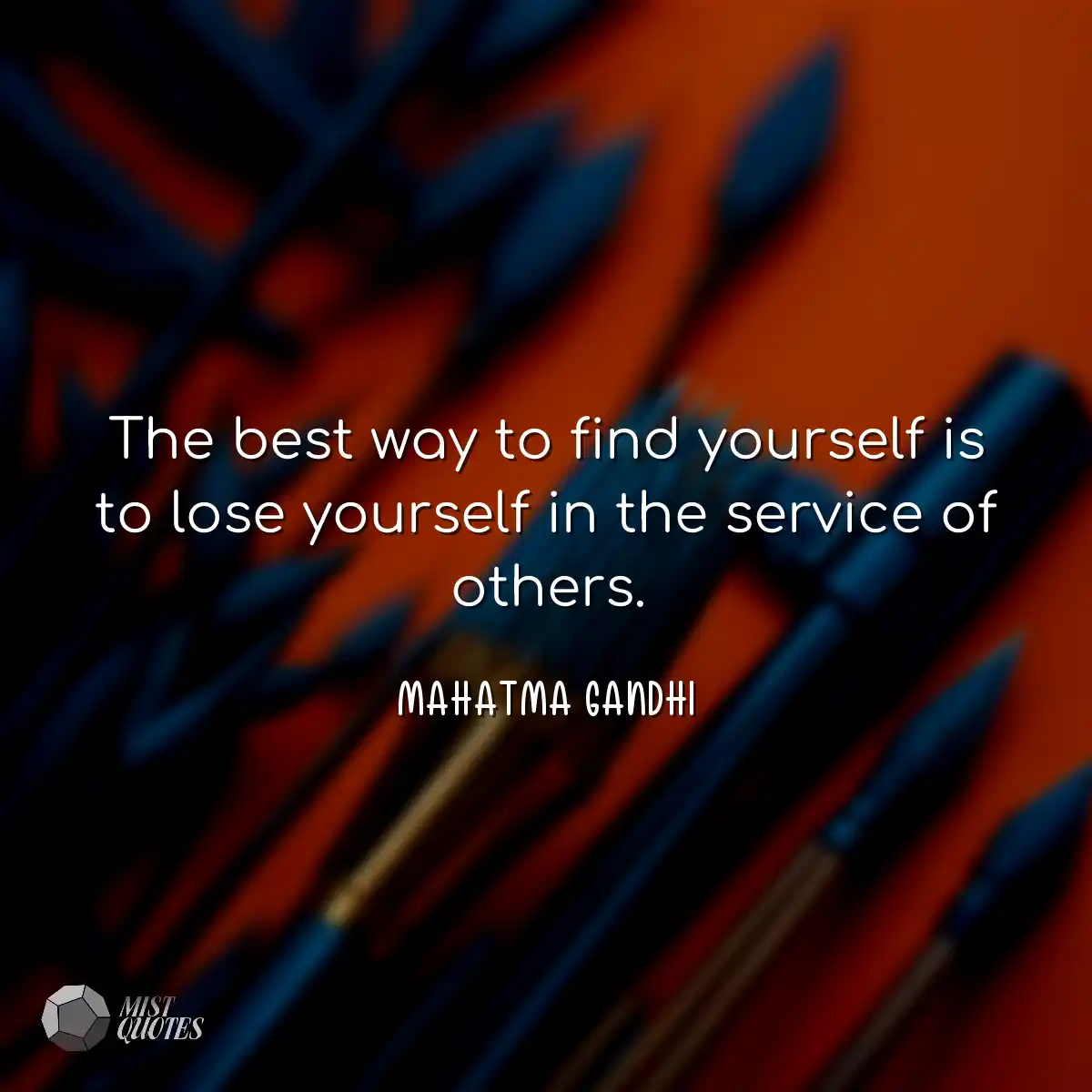
The best way to find yourself is to lose yourself in the service of others.

Happiness is when what you think, what you say, and what you do are in harmony.
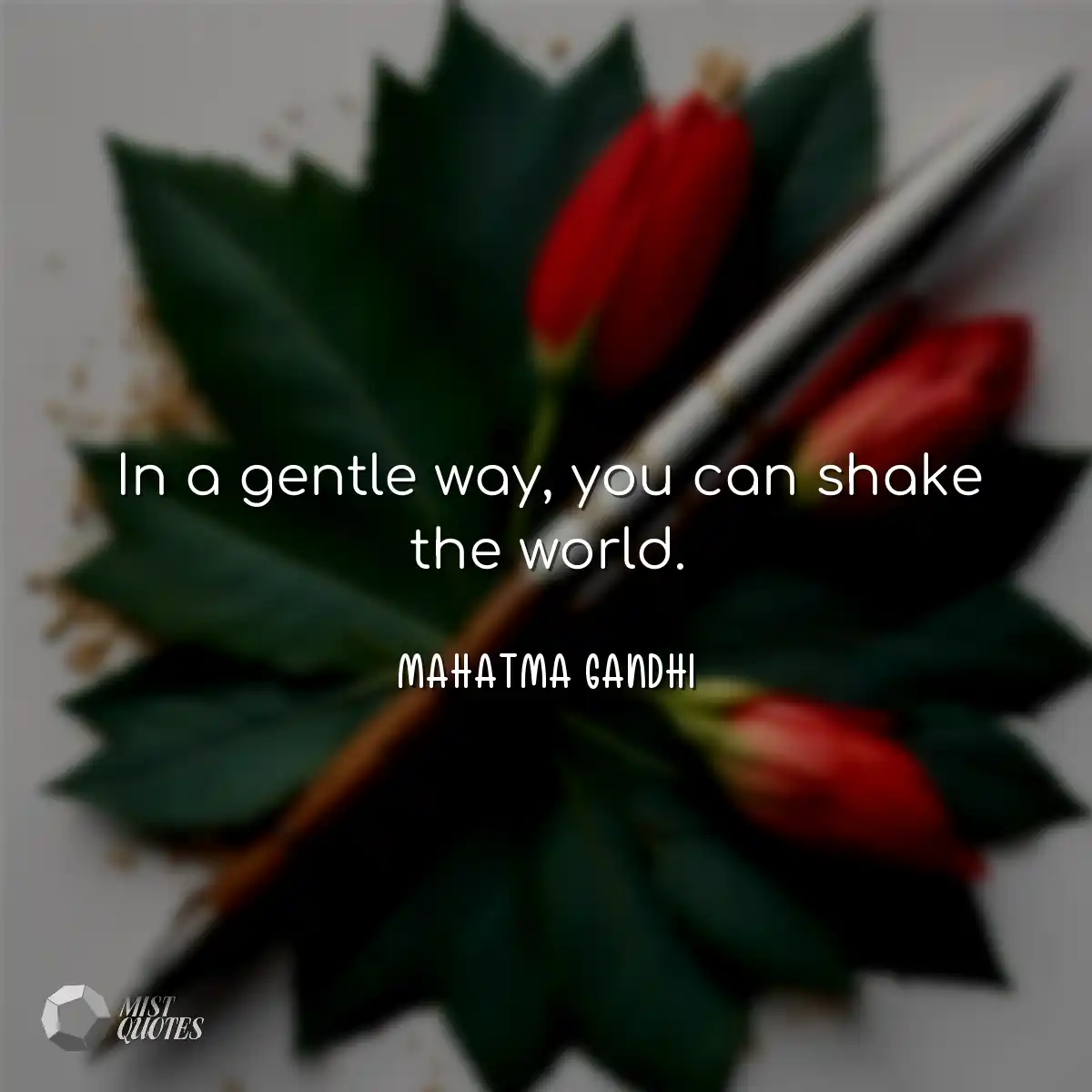
In a gentle way, you can shake the world.

The weak can never forgive. Forgiveness is the attribute of the strong.
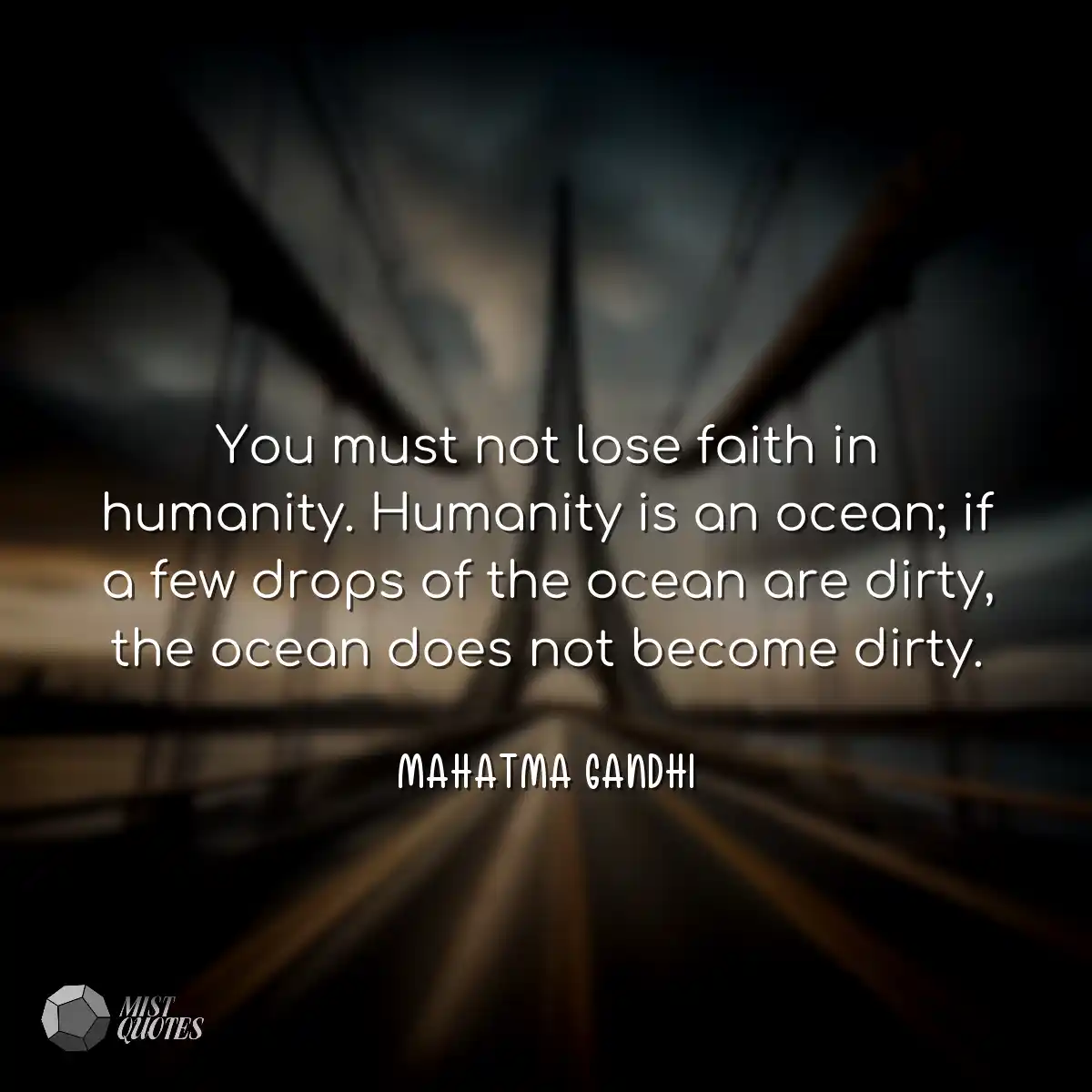
You must not lose faith in humanity. Humanity is an ocean; if a few drops of the ocean are dirty, the ocean does not become dirty.

The future depends on what you do today.

Strength does not come from physical capacity. It comes from an indomitable will.
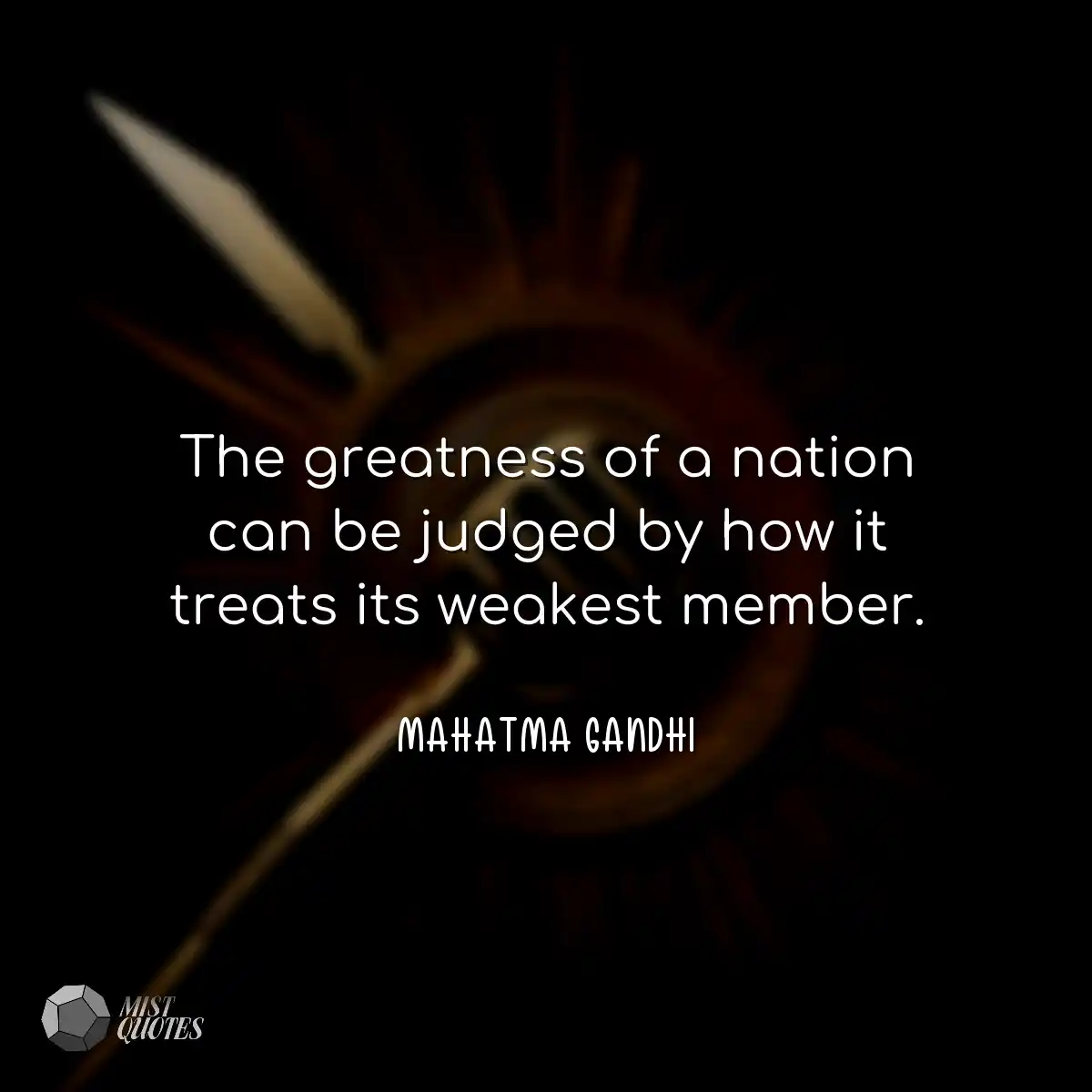
The greatness of a nation can be judged by how it treats its weakest member.
Mahatma Gandhi, whose birth name was Mohandas Karamchand Gandhi, was an Indian pacifist leader and political activist who played a crucial role in the struggle for India's independence from British rule. He was born on October 2, 1869, in Porbandar, Western India, and dedicated his life to promoting non-violence, peaceful resistance and human rights.
Gandhi began his career as a lawyer in South Africa, where he faced racial discrimination and injustice. It was during this time that he developed his philosophy of non-violent resistance, which he called "Satyagraha". He believed that truth and non-violence were powerful weapons to fight oppression and injustice.
On returning to India in 1915, Gandhi emerged as a leader in the Indian Independence Movement. He led campaigns of civil disobedience and boycott of British goods, promoting unity among the different religious communities and castes. His method of peaceful resistance inspired millions of people around the world to rise up against injustice and oppression.
One of the best-known campaigns led by Gandhi was the Salt March in 1930, in which he led a group of Indians in collecting sea salt, challenging the British monopoly on salt. This symbolic action demonstrated the strength of non-violent resistance and drew international attention to India's struggle for independence.
Gandhi was also a passionate advocate of women's rights, racial equality and social justice. He sought unity between Hindus and Muslims, working to promote religious harmony and peaceful coexistence. His philosophy and leadership inspired leaders such as Martin Luther King Jr. and Nelson Mandela in their struggles for civil rights.
Despite facing imprisonment and persecution throughout his life, Gandhi never abandoned his principles of non-violence. He believed that real change could only be achieved through love, compassion and dialogue. His efforts culminated in India's independence in 1947, but Gandhi did not live to see the new nation. On January 30, 1948, he was assassinated by a Hindu extremist.
Mahatma Gandhi's legacy continues to inspire people around the world. His message of non-violence, peaceful resistance and social justice remains relevant today. He reminds us of the importance of fighting for human rights, the need to promote equality and the ability of each individual to make a difference through non-violent action.
Gandhi is a globally recognized icon and his life and teachings remain a beacon of hope and inspiration for those seeking a more just and peaceful world.
Recent Quotes
"To help a friend in need is easy, but to give him your time is not always opportune."
Charlie Chaplin
"Life can be wonderful if you're not afraid of it. All it takes is courage, imagination… and a little dough."
Charlie Chaplin
